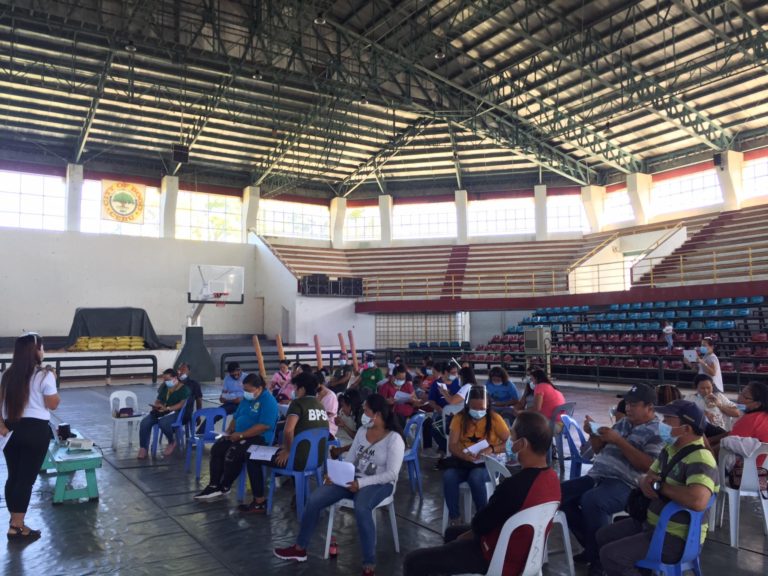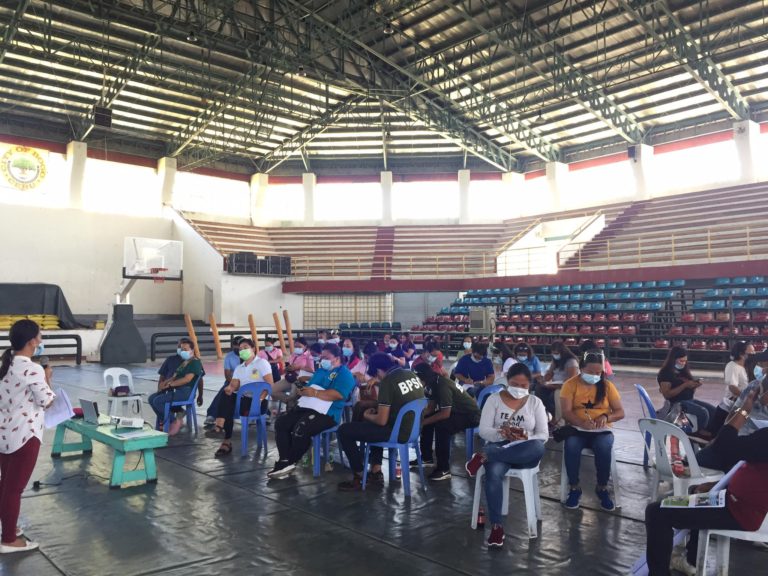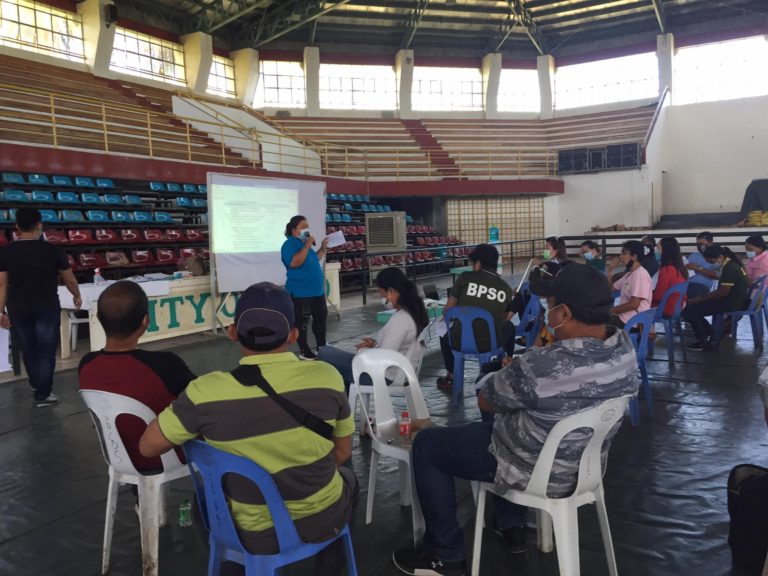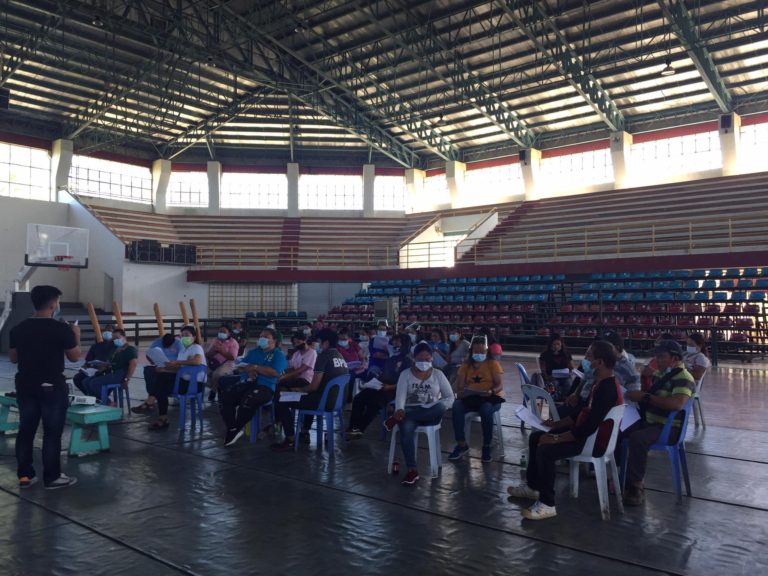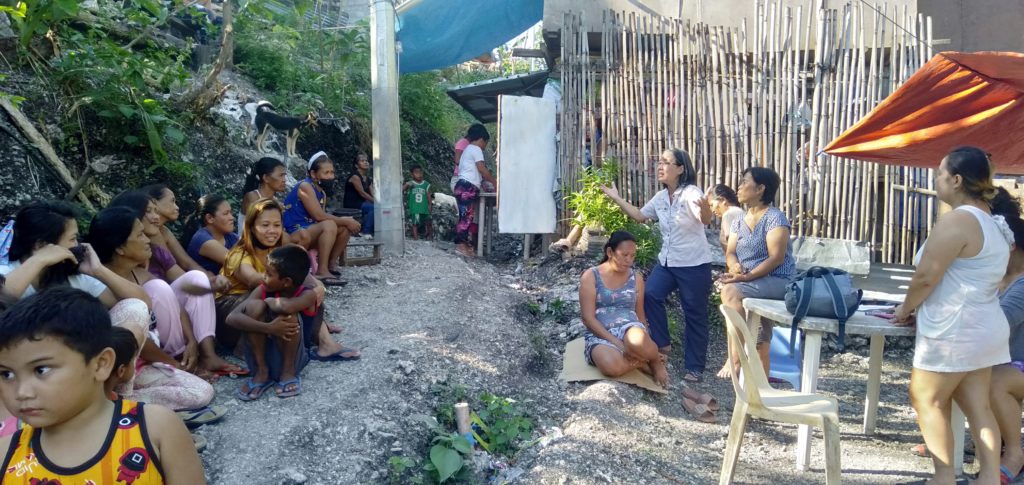A post training monitoring workshop was conducted for members of the Barangay Health Emergency Response Teams (BHERTs) of Bogo City on January 15, 2021.
There were two batches. The first batch was held at the Bogo City Hall covered court. They came from Barangays Lapaz, Odlot, Anonang Sur, Anonang Norte, Binabag, Siocon, La Purisima Concepcion, Carbon and Marangog. There were 78 participants and were composed 45 barangay health workers/barangay nutrition scholars, 10 tanods, 5 barangay captains, 13 barangay councilors and 6 barangay secretaries.
The second batch was held at the Bogo City sports complex. They came from Barangays Sambag, San Vicente, Santo Rosario, Polambato, Libertad, Lourdes, Pandan, Banban, Don Pedro Rodriguez, and Malingin. There were 37 in all. They were composed of 15 barangay health workers (BHWs), 5 barangay nutrition scholars (BNS), 9 councilors, 7 tanods, and 1 midwife
For a background, BHERTS coming from 19 barangays of Bogo City were trained on September 21 to 25 and had their post-training monitoring on October 26, 27, 2020. Since then, they were expected to apply what they have learned during the training and there was a need to assess how much they have done so through another post-training monitoring activity.
The post training monitoring had the following objectives, namely: 1. Determine the composition and functionality of the BHERTs, 2. Monitor their performance on navigating and listing of contacts, monitoring and reporting of close contacts, 3. Monitor their information dissemination of COVID-19 related issues, and 4. Monitor how they have facilitated the delivery of continuity of access to essential health services during the COVID-19 pandemic.
Most of the barangays had no cases of COVID-19 in the past weeks so that there was no more need of the BHERTs to perform their monitoring role of close contacts since there were no close contacts at all. They expressed their relief that this was now the situation. Nevertheless, they were always ready to perform their monitoring role anytime if there is a need to do so. Still, they had remained active in disseminating information on observance of the health protocols at all times especially in public places and in the streets.
For the BHERTs who were barangay health workers and barangay nutrition scholars, they had actively rendered the health services in their barangays such as helping their midwives and nurses during service days, weighing the infants for immunization, taking blood pressure of patients, dispensing medicines such as paracetamol, ferrous sulfate and vitamins, following up patients taking anti-tuberculosis medicines, and following up patients.
On water, sanitation and hygiene (WASH), they said that since some barangays had poor garbage disposal, lack of toilets, lack of environmental sanitation, they tried in their roles as BHWs to promote hygiene in their respective families and neighbors. Many of them had also actively taken part in the clean-up drives in the barangays which was an action plan made during the training on water, sanitation and hygiene (WASH).
A few BHERTs who were also midwives said that they were attending to teenagers who got pregnant during the pandemic to ensure that they had their prenatal check-ups regularly. There were also barangay captains who said that the people in their barangays were really following the health protocols.
The training on risk communication and community engagement also enhanced their skills to become more careful and empathetic towards caring their clients. They also gave more information regarding what is COVID-19 so that the communities were able to understand the disease.
The participants expressed that as BHWs, BNS, they know that they play an important role in the prevention and control of COVID-19 by promoting hygiene especially handwashing, social distancing at all times, and wearing of face masks in public.
A few of the participants said that they had a few cases of domestic violence among couples in their barangays, some of which have been brought to the attention of the barangay’s Violence against Women (VAW) Desk for amicable settlement.
They said they would continue to attend to the health needs of the residents in the barangays and seeing to it that the people continued to observe the health protocols always.
